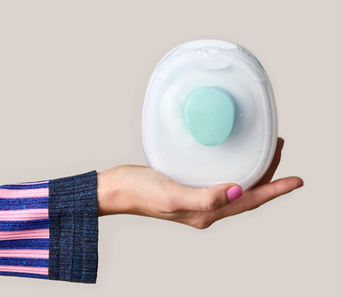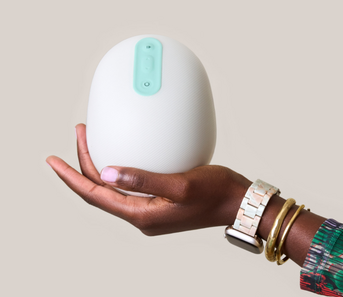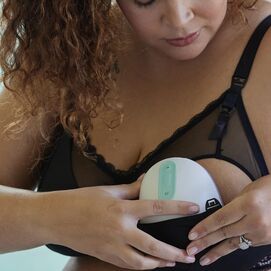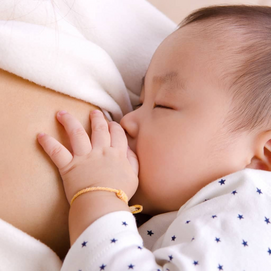It can be really tough to know whether your baby’s behaviors are “normal”, especially in the early months. If your baby’s crying falls noticeably outside the typical crying patterns for newborns, it might be a signal of an underlying medical issue. Here are some of the most common types, and how to know if your baby is experiencing one:
Why is My Baby Crying? 3 Common Causes
Let's explore the most common causes why your baby might be crying:
Colic
Colic is defined as 3 or more hours of crying per day, for at least 3 days per week, in an otherwise healthy infant under 3 months of age.
Food Allergies
The most common symptom of a food allergy is blood in stool. Other symptoms include eczema, wheezing, diarrhea or vomiting.
Baby Reflux
Signs of reflux include crying immediately after or during a feed and arching the back or seeming uncomfortable while feeding.
Related Reading: What causes babies to pop on and off every minute or so?
When to seek professional help
Most infants who cry excessively do not have a serious underlying medical problem. But if the common causes outlined above have been eliminated and your baby continues to cry outside the typical pattern, you should speak with your healthcare provider.
Call your baby’s medical provider during normal office hours if any of the following occur:
-
You have concerns about how to manage your crying baby
-
Excessive crying continues after your baby is older than four months
-
Your infant fails to gain weight
Always call your baby’s medical provider right away if they’re presenting with any of these symptoms:
-
Bloody stool or trouble urinating
-
Excessive or projectile vomit
-
Crying continuously for over 2 hours
-
External injury or suspected internal injury
-
Never satisfied after feeding
-
Refusing food or drink for more than a few hours
-
Showing signs of lethargy or decreased responsiveness
-
Fever 100.4F or higher. This symptom is considered an emergency if it occurs within the first 28 days.
Last but not least, parents need help sometimes too. If you’re feeling increasingly angry about your baby’s crying, call someone for support and take a break. If you feel the urge to shake, smother or slap your child, step away from them and call 1-800-4-A-CHILD to speak with a professional counselor.
Prolonged and inconsolable infant crying has been linked to symptoms of maternal depression.1 A mother’s feelings of helplessness when it comes to soothing her baby can be a powerful indicator of her risk for depression. Call your doctor if you or your partner are experiencing such symptoms. If you’re experiencing immediate distress, the National Suicide Prevention Lifeline offers emotional support 24 hours a day at 1-800-273-8255.
Learn More With Willow
Being a new mama can be overwhelming, pregnancy is an exhausting process, let alone trying to navigate all of the physical changes your body experiences! Looking for more resources? Visit the Willow blog to find insights and advice from real experts. You've got this!













